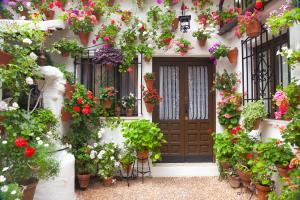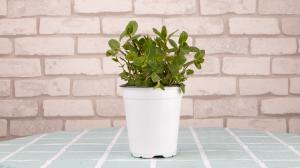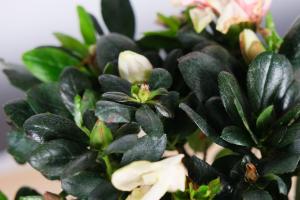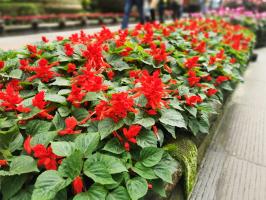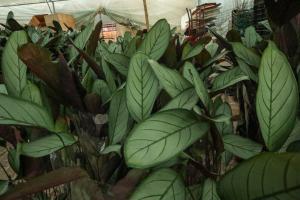What Plant Grows Strictly in Water with No Soil
When people think of gardening, they often think of plants growing in soil. However, there is one type of plant that grows strictly in water - hydroponic plants. Hydroponic gardening is a method of growing plants that is becoming increasingly popular, especially among modern urban gardeners. Instead of growing plants in soil, hydroponic plants are grown in a nutrient-rich water solution that contains all the essential nutrients plants need to grow and thrive.
What are Hydroponic Plants?
Hydroponic plants are plants that grow without any soil. Instead, they are grown in a watery nutrient solution that provides all the nutrients that the plant needs to grow. This method of growing plants is used by many farmers and gardeners around the world and is becoming increasingly popular because it has many benefits over traditional soil growing methods. Hydroponic plants often grow faster and have a higher yield than soil-grown plants. They are also less susceptible to pests and diseases and can be grown in smaller spaces.
Types of Hydroponic Plants
There is a wide variety of plants that can be grown hydroponically. Some of the most popular hydroponic plants include lettuce, spinach, tomatoes, peppers, and cucumbers. These plants can be grown in a range of hydroponic systems, including nutrient film technique, deep water culture, and ebb and flow systems. In addition, some hydroponic gardeners grow herbs, flowers, and even trees hydroponically.
How are Hydroponic Plants Grown?
Hydroponic plants are grown using a range of hydroponic systems. The most basic hydroponic system is the deep water culture system. In this system, the plants are grown in net pots on floating rafts in a nutrient-rich water solution. The water must be aerated constantly to provide the plants with enough oxygen. Another popular hydroponic system is the nutrient film technique. In this system, nutrient-rich water flows over the roots of the plants, providing them with the necessary nutrients they need to grow. The wick system is another popular hydroponic system. In this system, the plants are grown in a container filled with a nutrient-rich growing medium, such as perlite or coconut coir. A wick is then employed to carry the nutrient solution from the reservoir to the growing medium.
Benefits of Hydroponic Plants
Hydroponic plants have many benefits over traditional soil-grown plants. Because they are grown in a controlled environment, hydroponic plants have fewer pests, diseases, and weeds. This means that less pesticide is needed to kill harmful pests and less herbicide is required to keep weeds under control. Hydroponic plants are also grown without the use of soil. This helps to preserve soil and creates a sustainable way of growing plants. In addition, hydroponic plants usually grow faster and larger than soil-grown plants, leading to higher yields and more produce. Finally, because hydroponic plants are grown in a controlled environment, they can be grown year-round, allowing gardeners to enjoy fresh produce all year long.
Conclusion
Hydroponic plants are a fascinating and innovative way to garden. By growing plants in water, hydroponic gardeners can enjoy fresh, healthy produce all year round without worrying about pests, diseases, or weeds. Whether you're an experienced gardener or a beginner, hydroponic gardening is an exciting way to take your gardening skills to the next level.

 how many times do yo...
how many times do yo... how many planted tre...
how many planted tre... how many pine trees ...
how many pine trees ... how many pecan trees...
how many pecan trees... how many plants comp...
how many plants comp... how many plants can ...
how many plants can ... how many plants and ...
how many plants and ... how many pepper plan...
how many pepper plan...